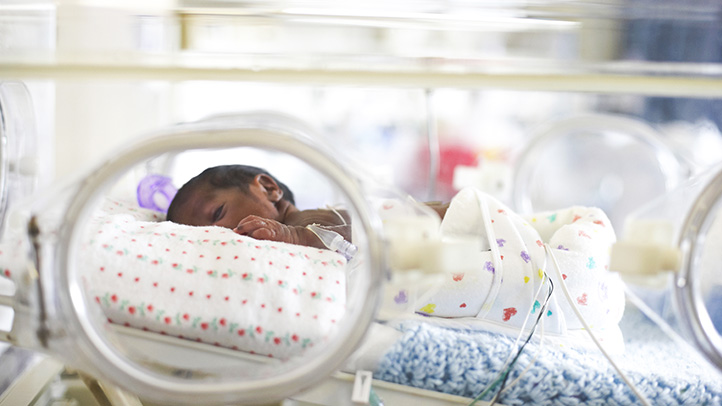There is a time for everything, and a season for every activity under the heavens. God makes all things beautiful in that time. So is it appointed that after 37 weeks of gestation, pregnancy gives way naturally for the birth of a fully grown baby who only started off as the product of a union between an ambitious sperm and an available egg during sexual intercourse.
This is, however, not the case all the time, as some babies force themselves out too early or have to be removed from the uterus much earlier than normal to save a mother or baby or both from a life-threatening situation. For various reasons too, there are babies on the other hand who also tend to overstay their welcome in the uterus.
Both situations are undesired and can have detrimental effects on the baby.
There is a problem of immaturity of the baby when birth occurs too early. Every organ of the baby remains underdeveloped, making the baby generally unfit to survive outside the uterus.
In fact, the earlier premature babies are born, the more likely it is that they will have developmental problems, if they survive at all.
Medical knowledge has, however, so advanced that being born premature should not be so unfortunate especially where access to skilled personnel are available.
This is why the month of November, also known as the purple month, is purposely set aside to globally celebrate and further advocate for the survival, thriving, development and protection of the viable premature baby.
Such babies might need to stay in the hospital’s neonatal intensive care unit (NICU)/ specialized neonatal care unit (SNCU) to be kept warm, for support to breathe, to learn to feed by sucking and to also gain weight. They are also better protected from infections in the hospital during the early days as they are so vulnerable and susceptible to falling sick from exposure to germs.
The theme for World Prematurity Day 2023 is: “Small actions, BIG IMPACT: Immediate skin-to-skin care for every baby everywhere”. The focus is on encouraging neonatal staff and all stakeholders to support new parents to start warming and bonding with their premature babies right after birth through skin- to- skin contact – Such a small simple inexpensive action, yet has huge benefits to survival.
The survival of a premature baby demands quality care given immediately at birth. It has been proven that immediate skin-to-skin care is the first and foremost need of every baby especially the premature one. In this continued position, other needed care can be given concomitantly if possible.
All babies face the greatest risk of death in their first 28 days of life.
In 2019, 47% of all deaths among children that occurred before their 5th birthday happened in the first 28 days of life, with about one-third of these dying on the day they were born.
About 1 in 10 babies are born before their time each year.
According to the World Health Organization (WHO), in 2019, about 15.2million babies were born too early globally with Ghana bearing responsibility for about 132,200 of these. Worldwide, about 900,000 of those born in this same year died due to complications of preterm birth.
Immediate skin-to-skin care following birth is a life-saving intervention that could have potentially prevented most of these deaths.
This is because a baby who survives the first minute of life can survive the first day of life.
Children who survive the first day of life can survive their first week. If they survive their first week, they can survive the first month. And if they survive their first month, they are likely to celebrate their first birthday.
Let’s do this.
By Dr Nana Esi Gaisie-Tetteh
Head of Institutional Public Health Unit,
Effia Nkwanta Regional Hospital,
Child Development Expert.
Fellow, Zero-to-Three Academy

